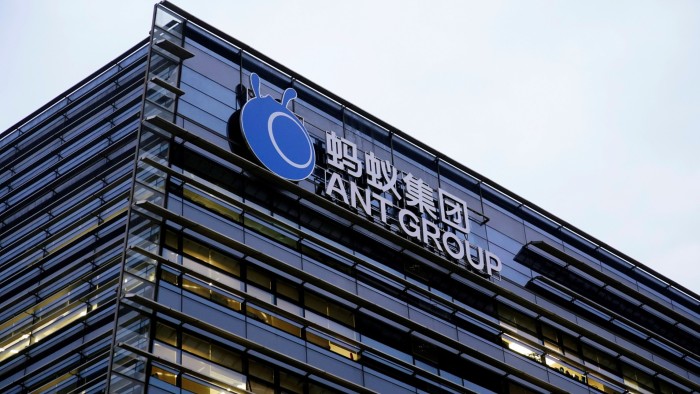Ant Group bids against Citadel Securities for Credit Suisse’s China unit

Roula Khalaf, Editor of the FT, selects her favourite stories in this weekly newsletter.
China’s Ant Group is bidding against Citadel Securities for Credit Suisse’s Chinese securities unit, a move that will test Beijing’s appetite for letting the Jack Ma-founded company expand again after a long-running crackdown.
Ant’s bid for Credit Suisse Securities (China) Ltd, which includes investment banking and brokerage services in mainland China, could complicate UBS’s plans to dispose of its stake in the unit. A deal would need regulatory approval and Ant has been in regulators’ crosshairs in recent years.
UBS put the business up for sale after taking control of Credit Suisse when it collapsed last year. It already has a securities unit in mainland China and cannot hold two licences.
Rival bidder Citadel Securities, the Miami-headquartered market maker founded by billionaire Ken Griffin, has offered about Rmb2bn ($278mn) for the unit as it plans to expand in China, the Financial Times reported in January. Two people with knowledge of the matter said Ant had made an offer. Details of the bid were not clear.
No final decision on a deal has yet been made, the people said, and any transaction would require the agreement of Founder Securities, the Chinese joint venture partner that owns a 49 per cent stake in the Credit Suisse unit, as well as UBS and regulators. UBS owns a 51 per cent stake.
UBS, Citadel and Ant declined to comment. The China Securities Regulatory Commission did not immediately respond to requests for comment. Bloomberg first reported Ant’s bid.
Regulators have previously signalled to Citadel that they are keen for the unit to be sold to an overseas bidder, since the licence was originally issued to a foreign player, said a person briefed on the matter.
Bankers hope a sale can be agreed this year, but any delays would risk adding an extra layer of political complexity by bringing the deal closer to the US presidential election in November, in which ties between the US and China are likely to be a key flashpoint.
The bid also sheds light on Ant’s interest in gaining a foothold in China’s investment banking industry, although several people familiar with the bidding process said Ant’s lack of any direct experience in investment banking raised questions about its seriousness.
The fintech group attempted to take a stake in Tebon, a smaller Chinese brokerage, in 2015. It had handled the issuing of most of Ant’s securities that were backed by its online loans. However, regulators have still not approved Ant’s application.
Ant’s efforts to expand its financial empire have been slowed since then. It was hit by a regulatory crackdown in late 2020 when its $37bn initial public offering was derailed. This came after Ma, once China’s richest person, made a speech in Shanghai accusing China’s state-owned banks of having a conservative “pawnshop” mentality that was stopping smaller companies and individuals from receiving credit.
Regulators fined Ant nearly $1bn last year, signalling a staged ending of the crackdown. Ant also completed a regulatory process in December that removed Ma’s control of the fintech.
Comments